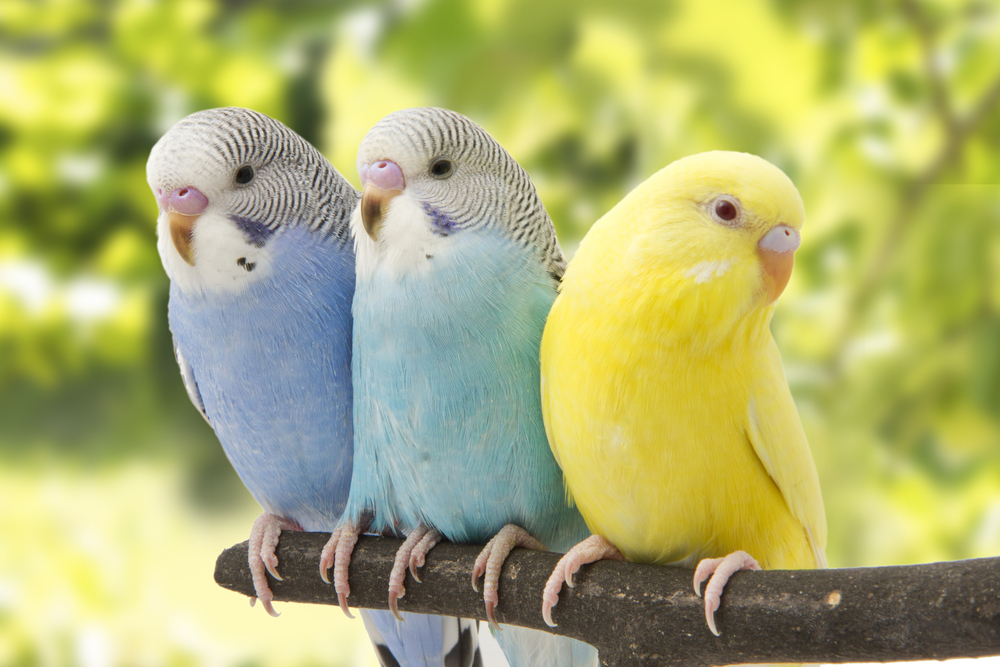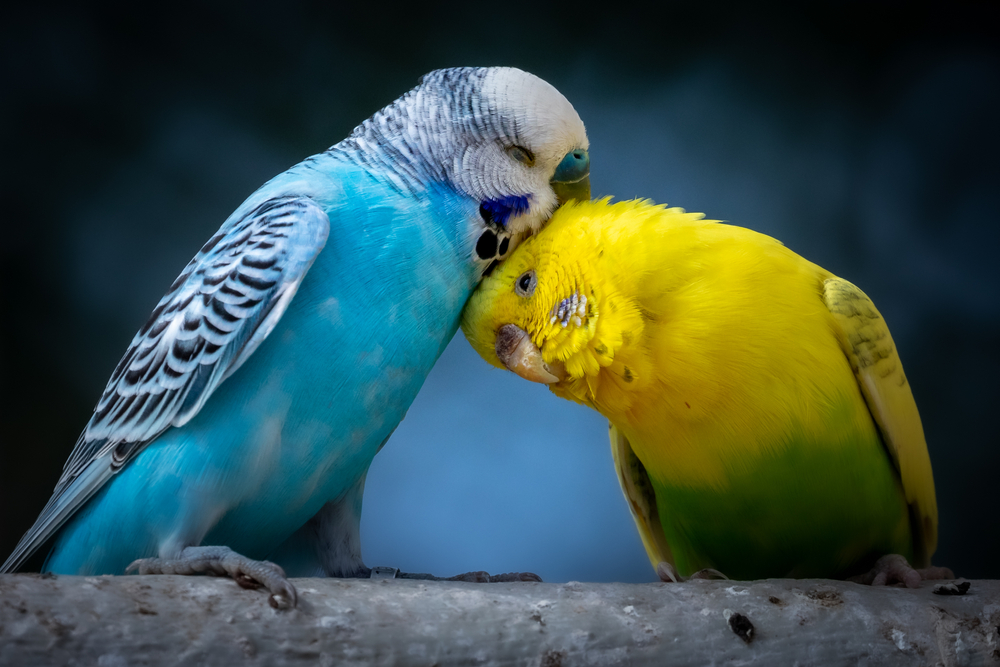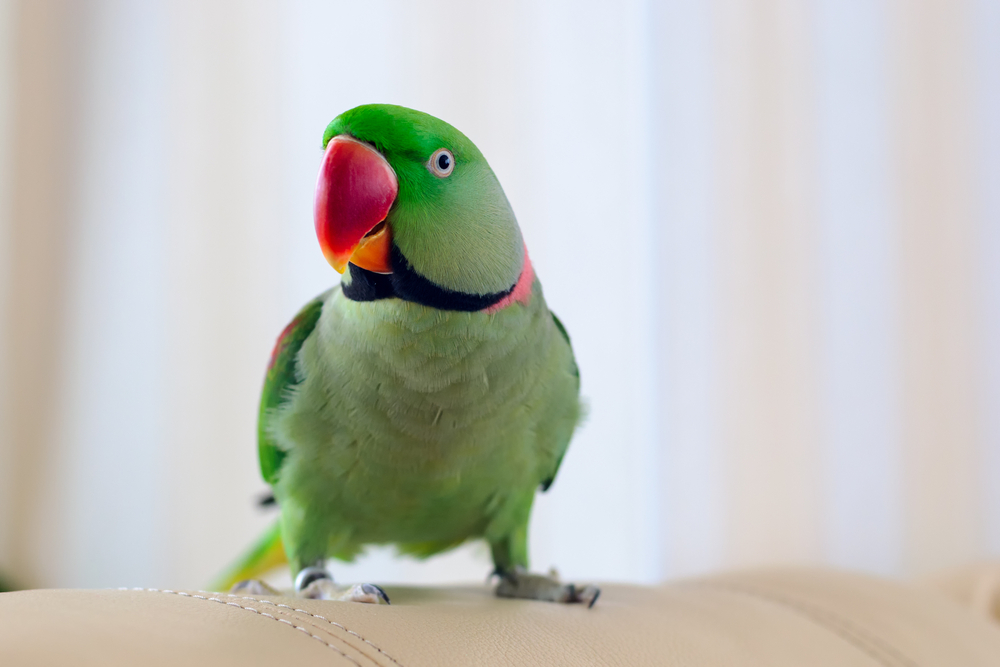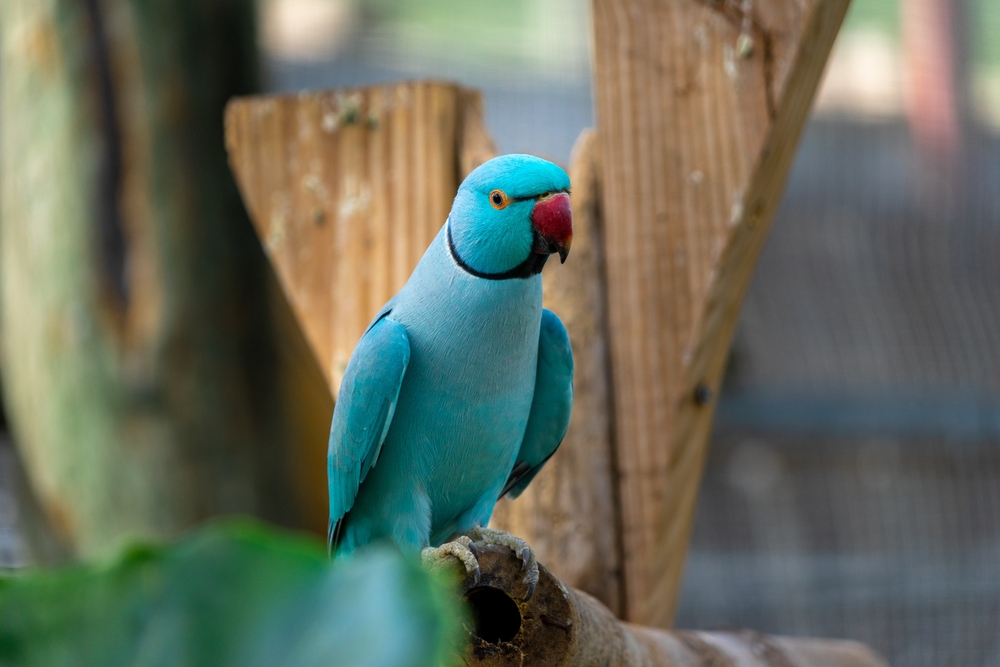Are Birds Easy to Take Care Of? Taking care of a pet is a significant responsibility, and it’s important to choose a pet that fits your lifestyle and preferences. If you’re considering getting a bird as a pet, you might wonder if they are easy to take care of. While birds can make great pets, it’s important to understand their care level before bringing one home.
Birds are generally considered low-maintenance pets, but that doesn’t mean they don’t require proper care and attention. Different bird species have different needs, and it’s essential to research and understand the specific requirements of the bird you’re considering. Factors such as diet, housing, socialization, and exercise all play a role in keeping your pet bird healthy and happy. In this article, we’ll explore the topic of whether birds are easy to take care of and provide some tips and guidelines for caring for your feathered friend.
Understanding Bird Species

Pet Bird Species Diversity
Birds come in a wide variety of species, each with its own unique characteristics and needs. When considering a pet bird, it’s important to research and understand the specific requirements of the species you’re interested in. Some species require more attention and care than others, and some may not be suitable for beginners.
Common pet bird species include canaries, lovebirds, budgies, cockatiels, parakeets, doves, and parrots such as the Pionus parrot, Lineolated parakeet, Gabon Gray parrot, Quaker parrot, and Cockatoo. Each of these species has its own distinct personality, behavior, and needs.
Common Pet Birds
Canaries are known for their beautiful singing, while lovebirds are social and affectionate. Budgies are popular due to their small size and ease of care, while cockatiels are intelligent and playful. Parakeets are also easy to care for and come in a variety of colors. Doves are peaceful and gentle, making them great for those who want a more relaxed pet.
It’s important to note that while some species may be easier to care for than others, all pet birds require some level of attention and care. They need a healthy diet, clean living environment, and regular exercise and socialization.
When choosing a pet bird, consider your lifestyle and the amount of time you can dedicate to caring for your new feathered friend. With proper care and attention, birds can make wonderful and rewarding pets.
Bird Care Basics

When it comes to taking care of birds, there are a few basics that you need to keep in mind. These include housing and environment, feeding and nutrition, and health and wellness.
Housing and Environment
Birds require adequate space to move around and fly, so it’s important to provide them with a large cage or aviary. The cage should be at least twice your bird’s wingspan, allowing plenty of room to move around. Providing your bird with plenty of toys and perches for enrichment is also important.
Make sure to keep the cage clean and well-maintained. This includes providing fresh water daily and cleaning the cage regularly. You should also ensure that the cage is located in a quiet area away from drafts and direct sunlight.
Feeding and Nutrition
A healthy diet is essential for your bird’s health and well-being. Birds require a varied diet that includes a mix of bird food, pellets, seeds, fruits, and vegetables. It’s important to provide your bird with fresh food and water daily and to avoid feeding them foods that are high in fat or sugar.
You should also provide your bird with plenty of opportunities for foraging and enrichment. This can include hiding food in toys or providing them with bird-safe nuts and seeds to crack open.
Health and Wellness
Regular veterinary check-ups are important to ensure your bird is health and illness-free. Birds can be prone to a variety of health issues, including respiratory infections and feather plucking, so it’s important to keep an eye out for any signs of illness.
In addition to regular veterinary check-ups, it’s essential to provide your bird with plenty of attention and socialization. Birds are social creatures and require plenty of interaction to thrive. This can include spending time with your bird, providing them with toys and perches, and giving them plenty of opportunities to fly and exercise.
Taking care of a bird requires a bit of effort and attention, but it can be a rewarding experience. Providing your bird with a healthy diet, a clean and comfortable living space, and plenty of attention and socialization can help ensure that your feathered friend is happy and healthy.
Bird Behavior and Interaction

Understanding Bird Behavior
Before deciding to adopt a bird, it is important to understand their behavior. Birds are intelligent creatures with unique personalities, and their behavior can vary depending on the species. It is important to observe and understand their behavior to ensure their needs are met.
Birds are social creatures and require social interaction with their owners or other birds. They are also intelligent and require mental stimulation to prevent boredom and negative behaviors. It is important to provide them with toys and playtime to entertain them.
Birds have different personalities and can display different behaviors. Some birds are friendly, quiet, and gentle, while others may be more vocal and active. It is important to choose a bird that matches your lifestyle and personality.
Social Needs of Birds
Birds require socialization and interaction with their owners or other birds to maintain their mental and physical health. They can become lonely and bored if left alone for long periods of time, which can lead to negative behaviors such as feather plucking and aggression.
It is important to spend time with your bird and provide them with opportunities for social interaction. This can include playing with toys, talking to them, or allowing them to fly around in a safe environment.
When socializing with your bird, it is important to be gentle and patient. With proper training and socialization, birds can become tame, but it takes time and patience. It is important to understand their body language and respect their boundaries.
In conclusion, understanding bird behavior is crucial for providing proper care and socialization for your feathered friend. Birds require social interaction, mental stimulation, and a safe environment to thrive. You can have a happy and healthy bird companion by providing these things.
Choosing the Right Bird
When it comes to choosing a bird as a pet, there are several factors to consider. From the bird’s size to its maintenance level, choosing a bird that will fit well into your lifestyle and home is important. Here are some considerations to keep in mind when selecting a pet bird.
Considerations for Choosing a Pet Bird
Size
The size of the bird is an important factor to consider when choosing a pet. Larger birds, such as parrots and cockatoos, require more space and attention than smaller birds like finches or budgies. A smaller bird may be a better option if you have limited space.
Personality
Different birds have different personalities, just like people. Some birds are more social and affectionate than others, while some may be more independent. Consider what kind of bird personality would best fit your lifestyle and preferences.
Maintenance
All birds require some level of maintenance, but some species are more high-maintenance than others. If you’re looking for a low-maintenance bird, consider a species like a dove or a canary. These birds are generally easy to care for and require less attention than other species.
Gender
In some species, the gender of the bird can affect its behavior and temperament. For example, male finches are known for their beautiful singing, while female finches tend to be more reserved. Consider what kind of behavior you would like to see in your bird when choosing a gender.
Low-Maintenance Bird Options
If you’re looking for a low-maintenance bird, here are some species to consider:
- Finch: These small, colorful birds are easy to care for and don’t require much space.
- Canary: Canaries are known for their beautiful singing and are also relatively low-maintenance.
- Dove: Doves are gentle birds that are content to entertain themselves for much of the day.
- Budgie: Also known as parakeets, budgies are popular pets because of their curious and affectionate nature.
- Cockatiel: While slightly larger than other low-maintenance birds, cockatiels are still relatively easy to care for and make great pets for families.
Remember, when choosing a pet bird, it is important to consider your lifestyle, space, and level of commitment. With the right research and preparation, you can find a bird that will be a great addition to your home.
Bird Accessories and Toys

Taking care of a bird involves more than just providing food and shelter. Birds are intelligent creatures that need stimulation and entertainment to stay healthy and happy. This section’ll discuss some essential bird accessories and toys that can help keep your feathered friend active and engaged.
Choosing the Right Bird Toys
When it comes to choosing the right bird toys, there are a few things to keep in mind. First, consider the size of your bird. Larger birds like macaws and cockatoos need bigger toys that they can grapple and chew on, while smaller birds like finches and canaries prefer bells, mirrors, and swings.
Second, look for toys that are made from safe, non-toxic materials. Avoid toys made from galvanized metals, which can be toxic to birds, and opt for toys made from natural materials like wood, paper, and cotton rope.
Third, choose toys that offer different textures and shapes to keep your bird engaged. For example, a toy with a mix of soft fleece, hard plastic, and chewable wood can provide hours of entertainment for your bird.
Importance of Bird Perches
Bird perches are another essential accessory for your feathered friend. Perches provide a place for birds to rest, play, and exercise their feet and legs. When choosing a perch, look for one that is the right size for your bird and made from a safe, non-toxic material like natural wood.
It’s also important to provide a variety of perches with different textures and diameters to help keep your bird’s feet healthy and strong. A mix of smooth and rough surfaces can help prevent foot problems like bumblefoot.
In conclusion, providing your bird with the right accessories and toys is essential for their physical and mental well-being. By choosing safe, stimulating toys and a variety of perches, you can help keep your feathered friend happy and healthy for years to come.
Challenges of Bird Ownership
Time and Commitment
Birds require a significant amount of time and commitment from their owners. They need daily attention, including feeding, cleaning, and social interaction. Depending on the species, they may also require regular exercise and mental stimulation to prevent boredom and destructive behavior.
It’s important to research the specific needs of the bird you’re interested in before bringing one home. Some species, like parrots, can live for decades and require a long-term commitment from their owners. If you’re not prepared to make this commitment, it’s best to consider a different pet.
Cleaning and Maintenance
Another challenge of bird ownership is the cleaning and maintenance required to keep them healthy and happy. Birds are generally clean animals, but they produce waste that must be regularly cleaned up. This includes cleaning their cage or aviary, changing their food and water, and providing fresh bedding.
In addition to cleaning, birds also require regular grooming to maintain their feathers and beaks. This may include trimming their nails, wings, and beaks and providing them with toys and other forms of mental stimulation.
Overall, bird ownership can be a rewarding experience for those who are willing to make the necessary time and commitment. However, it’s important to understand the challenges involved and be prepared to meet the needs of your feathered friend.
For More info : https://www.audubon.org/
What are some low-maintenance pet birds?
If you’re looking for a low-maintenance pet bird, consider getting a dove or a canary. They require minimal attention and are relatively easy to care for.
Which types of birds are best for kids?
Budgerigars, also known as budgies, are a great option for kids. They are small, easy to handle, and can be taught to mimic words and sounds. Cockatiels and lovebirds are also good options, but they may require a bit more attention and care.
Can pet birds be kept without a cage?
It’s not recommended to keep pet birds without a cage. Birds need a safe, secure place to sleep, eat, and play. A cage provides a controlled environment where you can monitor your bird’s behavior and ensure they are not getting into dangerous situations.
How do you care for an injured bird?
If you come across an injured bird, it’s important to handle it with care. First, make sure the bird is in a safe place away from predators. Then, contact a local wildlife rehabilitation center or a veterinarian who specializes in avian care for assistance.
What is the easiest way to care for birds in the summer?
During the summer, it’s important to keep your bird’s cage in a cool and shaded area of your home. Provide plenty of fresh water and try to keep the air conditioning on to maintain a comfortable temperature. You can also offer your bird a shallow dish of water to bathe in to help them cool off.
Which birds are known for being able to talk?
African grey parrots and Amazon parrots are known for their ability to mimic words and sounds. However, keep in mind that not all birds will learn to talk, and it requires patience and training to teach them.